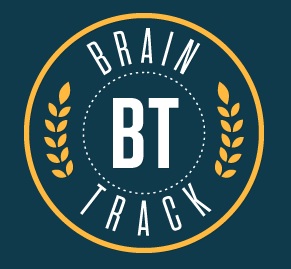Transfer Student Guide Offers Advice for Scholars
For high-achieving, low-income students, one of the most significant obstacles to accessing higher education is simply finding the right information. That’s why one of our Foundation’s guiding principles is to counsel and guide our Scholars about how to prepare for, apply for, select, pay for, and navigate a college that is the best fit.
Fortunately, we’re not the only ones. There are a lot of great organizations out there that have similar missions.
One example of a wonderful online resource our Scholars should check out is Brain Track, which is a directory of 6,935 accredited campus and online colleges in the U.S. Its site also has a very useful scholarship database with 19,680 different scholarships listed. 
Brain Track drew our attention recently because of its simple, straightforward “Transfer Student Guide.”
The guide is a user-friendly resource that can give you a concise, 30,000-foot view of the things you need to consider if you are thinking of transferring to a different school.
It explains why students typically transfer, including cost, major programs, or simple life circumstances. If you’re thinking of doing so, it’s important to realize that you’re not alone: about one-third of college students transfer from one school to another during their academic careers. Relax—transferring can be a key way to complete a degree, so you should view it as an opportunity.
The best advice the guide offers is plan ahead. Simple enough, but more easily said than done. The most important part of planning should be understanding how credits transfer and following up with both schools during the process, which the guide also goes over thoroughly.
Our Scholars will be particularly interested in the transfer scholarship section, which mentions JKCF’s Undergraduate Transfer Scholarship as well as Tau Sigma National Honor Society Transfer Scholarships and The Phi Theta Kappa Honor Society Transfer Scholarships.
But our Undergraduate Transfer Scholarship is just part of our commitment to transfer students. For example, the Foundation’s roughly $7 million Community College Transfer Initiative (CCTI) was designed to help high-achieving community-college students earn bachelor’s degrees at top colleges and universities nationwide. From 2006-2014, we supported 14 highly selective colleges and universities in developing programs, policies, and partnerships with community colleges to improve student preparation, assistance with admission and financial aid, orientation and “bridge” programs, and post-admission support. The CCTI was recently featured in Community College Week.
If you’re thinking about transferring, take a look at the video we shared last fall featuring JKCF Scholars and college administrators sharing their insights and giving advice on why and how to transfer from a community college to a selective four-year college or university. The video reinforces much of the same advice from Brain Track’s Transfer Student Guide.
Finally, click here to hear an interview with Kat Robinson, a 2010 Undergraduate Transfer Scholar and current president of the Jack Kent Cooke Scholar Association (JKCSA), about her experience transferring with the support of the JKCF community. You could be our next success story!